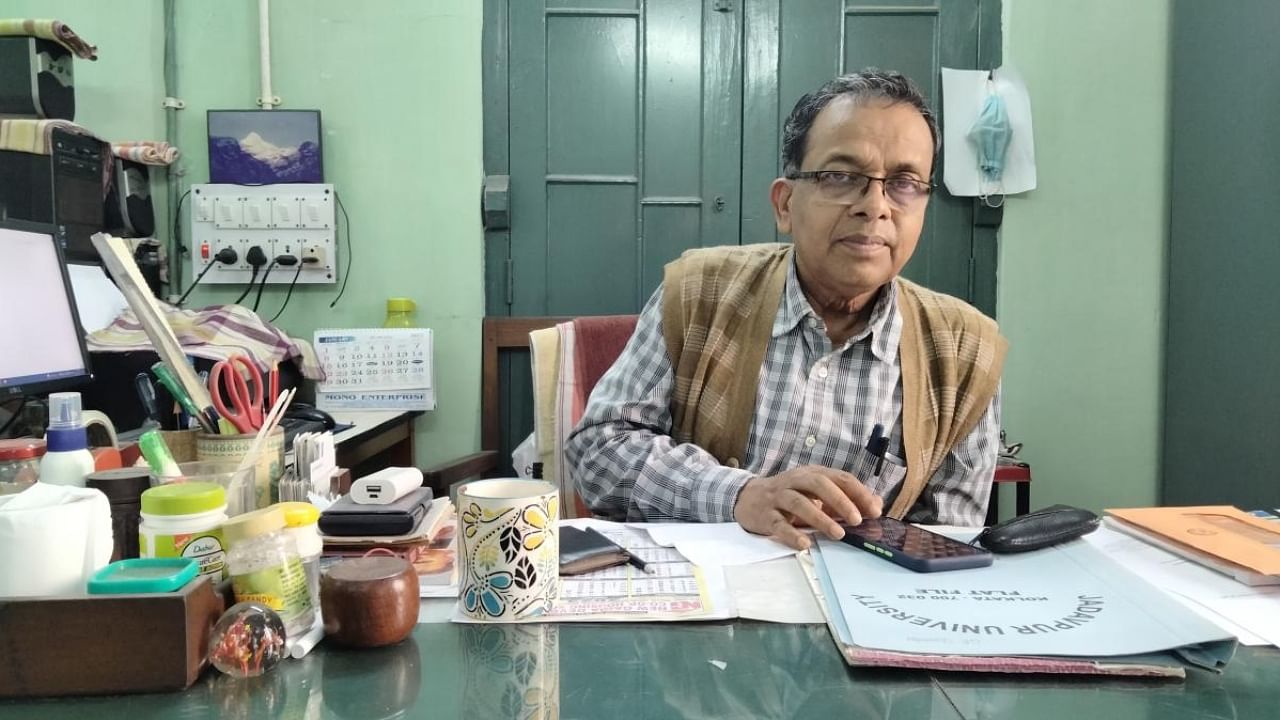
On April 12, 2012, Ambikesh Mahapatra’s quiet life was upended.
A chemistry professor at Jadavpur University, Mahapatra was picked up from the office of the housing cooperative society where he stays for sharing a satirical cartoon through email after a Trinamool Congress worker lodged a complaint.
The cartoon depicted West Bengal Chief Minister Mamata Banerjee in conversation with Mukul Roy, then a newly appointed railway minister. It also had a visual of the then-outgoing railway minister Dinesh Trivedi.
The toon, Mahapatra told DH recalling the incident, appeared innocuous. So, Mahapatra did what many of us would do: passed it along to a few friends through a group email. The matter should have ended with a few laughs. But it didn’t.
His arrest outraged many citizens and activists, who felt that it impinged on free speech and expression.
Mahapatra’s ordeal fits a pattern of how increasingly thin-skinned governments across the country are cracking down on dissent and behaviour they don’t approve of.
“What has been done to Ambikesh Mahapatra and his neighbour is totally illegal and an abuse of power by police. The mental agony he suffers, and the harassment he faced, is condemnable," said Sujata Bhadra, human rights activist.
In Mahapatra’s case, the matter dragged along for 11 long years and involved 70 hearings including 35-40 occasions of personal appearances – enough to traumatise anybody.
Finally, on January 18 this year, an additional sessions judge discharged him from the case.
Throughout this time, Mahapatra carried on with his teaching, quietly enduring the ordeal.
The case
Mahapatra was booked under Sections 509/ 500/ 114 of the IPC, read with Section 66A (b) of the IT Act by the Purba Jadavpur Police Station.
It was alleged that Mahapatra (and four others) used the mail address of a cooperative society (they represented officially) to send mail and printouts in the name of the chief minister to all other members of the society to insult her modesty.
Another allegation, which Mahapatra strongly rejects, is that these people also uttered abusive language and defamatory remarks about the chief minister during a door-to-door visit.
Subsequently, only two persons — Mahapatra and Subrata Sengupta — were charge-sheeted, and the other three accused persons were discharged for want of evidence.
With the case making news, on April 16, 2012, West Bengal Human Rights Commission stepped in and questioned the manner in which Mahapatra and Sengupta were arrested “from their residence in the dead of night on certain charges”. In a damning observation, the WBHRC noted that the “police did not know the campaign or contents of the email” when the arrests were made.
In August, the Commission recommended that departmental proceedings be initiated against two police officers of the station concerned, and the state government compensate Mahapatra and Sengupta with Rs 50,000 each.
In 2015, there was some good news. The Calcutta High Court upheld the Commission's recommendations. In the same year, the Supreme Court struck down Section 66A of the IT Act, the provision having been challenged through several writ petitions.
But the case grinded on, with Mahapatra and Sengupta’s attempts at getting discharged from the case proving futile.
In 2016, Mahapatra did something unusual: he decided to contest the Assembly polls from a seat in Kolkata as an Independent. He received backing from the Left, Congress and other Left-affiliated groups.
“I was supported by various factions who were focused on human and civil rights,” he said. “I was not in any activity (before the controversy happened). All I did was teaching and research. As part of the teachers’ association, I took part in its activities.”
In 2019, with the case still on, Sengupta passed away. He was 80, Mahapatra said. It would be four more years before Mahapatra, whose wife is also a teacher, would get relief.
“I have certainly felt harassed,” said Mahapatra, now 62. “On occasions, I felt helpless. The state power was exercised through the police. Ultimately, I feel I have received justice.”
Ritzu Ghosal, general secretary of the West Bengal Pradesh Congress Committee, and advocate at the Calcutta High Court, was critical of the entire episode.
“The Constitution has guaranteed freedom of speech in Article 19-1(a), with reasonable restrictions. If you haul up somebody for creating a satirical piece, or for sharing one as in the case of Ambikesh Mahapatra, you are encroaching on one's freedom to criticise,” he said.
Ghosal further added that “both the Centre and the state do not take criticism in a proper spirit. The spirit of democracy is a spirit of criticism and satire”.